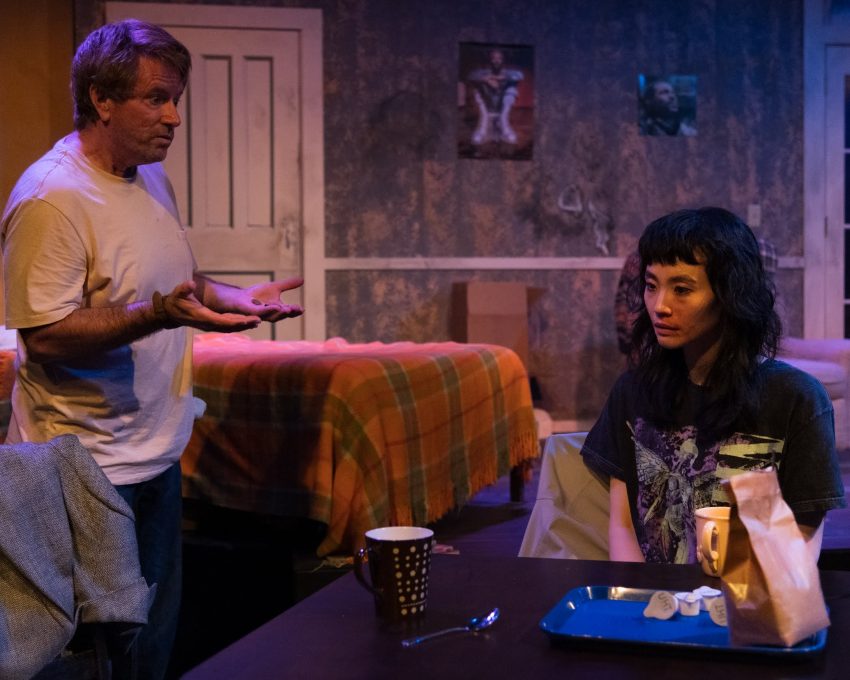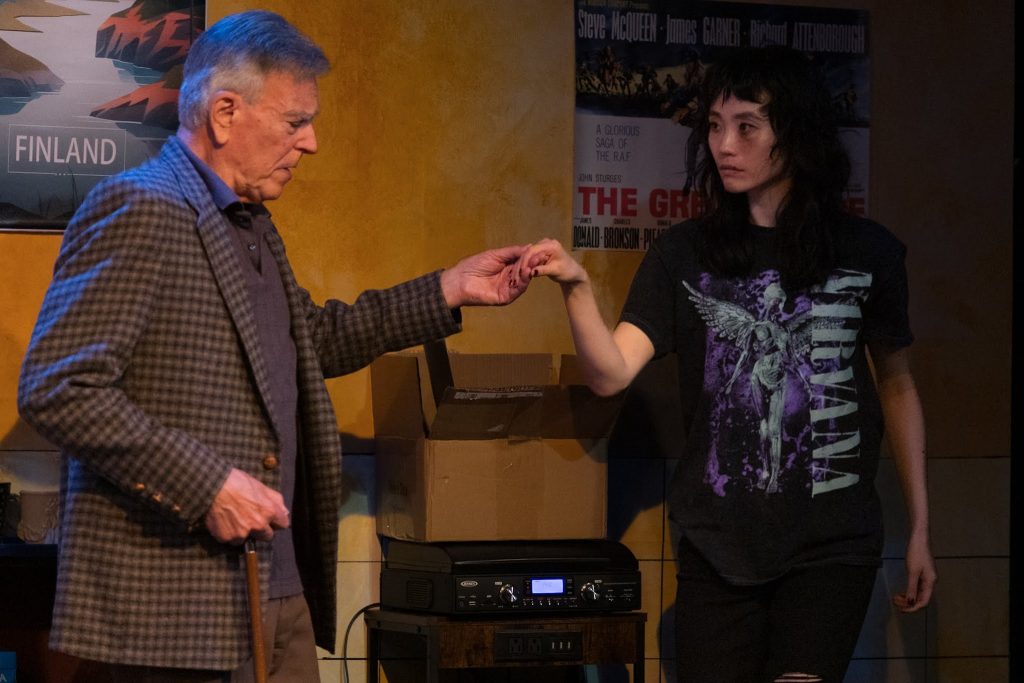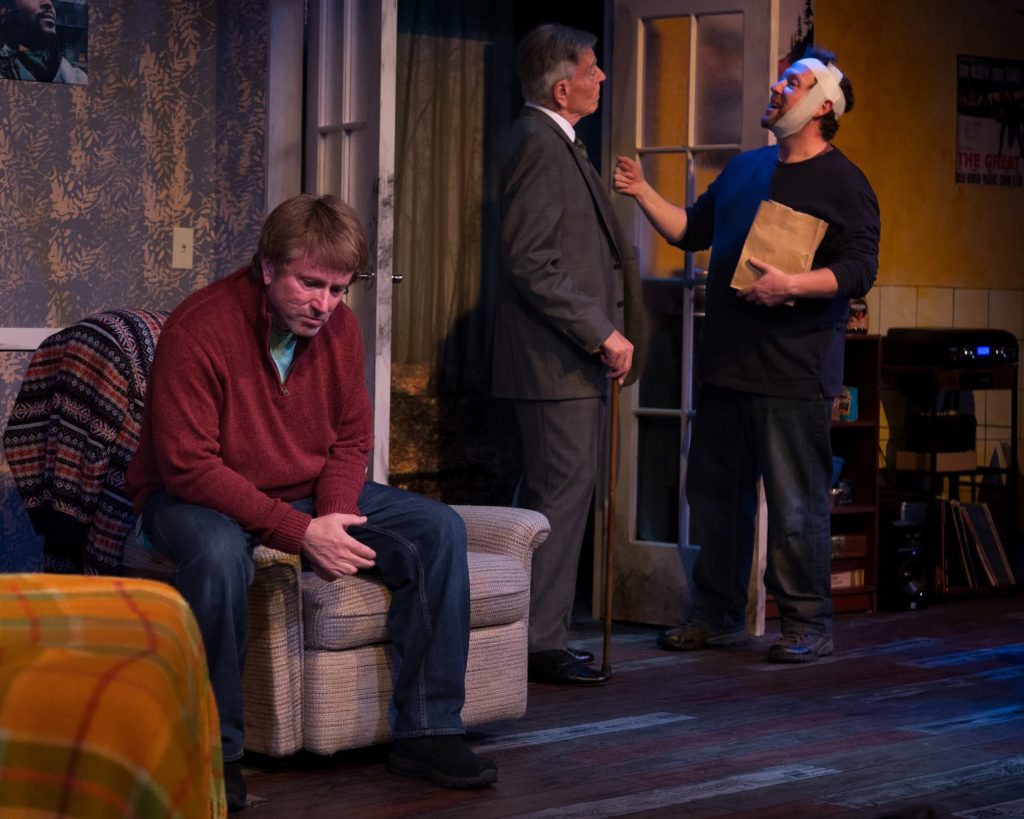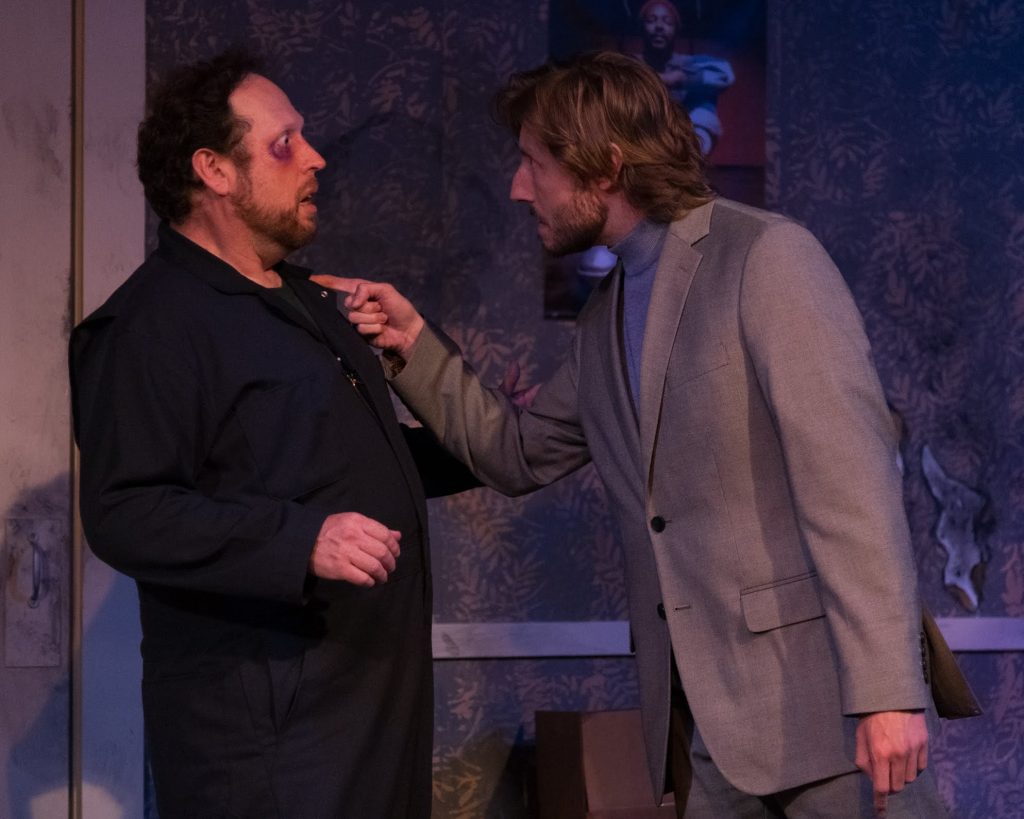
“The Night Alive” Whisks Irish Sorrow into American Hope—at Altarena
Millennial Notes
Conor McPherson Brilliantly Illuminates Neglected Lives
by Hamilton Nguyen
“The Night Alive” offers hope for Dublin’s poor with a unexpected and satisfying climax.
At the intimate Altarena Playhouse, Director Katina Psihos Letheule illuminates the struggles of deprived, impoverished Irish workers. The consequences of social class division in Dublin play out realistically. Like a joyful leader, the director guides us through bleak times to reveal a hopeful path.
At the center of the arena stage, a cramped rented room holds a flimsy bed frame, supported by pyramids of cardboard playing cards. The rough wool blanket promises scratchy nights. Surprising posters depicting Marvin Gaye, Finnish fjords, and The Great Escape proclaim the need for a big change.
On the radio, Gaye’s song “What’s Going On” wonderfully captures the melancholy mood. Playwright Conor McPherson uses pop culture to connect us with the vulnerable Irish underclass.

As unkempt Tommy (charming John Tranchitella) navigates between piles of dirty clothes, he reuses the same coin to scam the water heater. Tommy’s messy decisions leave him hopeless, in misery’s grip. In a selfless act of chivalry, he offers humble hospitality to a battered woman, scrambling to find toilet paper. His knight in armor routine warms our hearts. Tranchitella convincingly portrays a good, but broken man.
Dressed in a revealing black crop top and sexy black jeans, Sarah Jiang plays Aimee, a battered prostitute. Her shattered self-esteem keeps her spinning in a cycle of deprivation. Sadly, her self-destructive behavior is all too familiar. Jiang’s intriguing Aimee encapsulates an abused woman’s courage and fear.
Trauma permeates McPherson’s underground Irish lives.

In a beige blazer and black pants, Aimee’s pimp Kenneth (energetic Johnathan Covey) copies a gentleman’s uniform. He is a sharply dressed monster. Like a calculating beast, he threatens Aimee with coercion and violence. His intense glares and sinister smirks make us wildly uncomfortable. Covey mimics the predatory male.
In worn T-shirts and jeans, kindhearted Doc (versatile Dan Kolodny) causes trouble. Doc’s actions lack rational thought. Haphazardly, he steals candy bars in front of cameras and cockblocks Tommy. Kolodny’s rendition of the gullible, slow Doc leaves us smiling. He also surprises us with his beautiful song, unexpected and too brief.

Upstairs, Tommy”s landlord, his Uncle Maurice (mesmerizing Geoffrey Colton) constantly storms downstairs to complain. Like a nobleman, always dressed in suit and tie, he pokes fun at Doc and Tommy, treating them like unruly peasants under his control.
But Uncle Maurice grapples vividly with guilt and sorrow, too. Drunk with whiskey and depression, he tumbles and falls. Colton vigorously captures the dark persona of a decaying English gentleman.
“Night Alive” offers a rich tapestry of emotions—from humor to heartbreak. While there are numerous high notes, occasionally we feel disconnected by uneven Irish accents and sudden spikes in pacing.
At “Night Alive,” generosity and resilience finally reward us with a surprising sunrise of hope.
“The Night Alive” by Conor McPherson, directed & designed by Katina Psihos Letheule, set construction by Tom Curtin, lighting by Kevin Myrick, sound by Michael O’Brien, at Altarena Playhouse, Alameda, California. Info: altarena.org – to September 22, 2024.
Cast: Geoffrey Colton, John Tranchitella, Sarah Jiang, Dan Kolodny, and Johnathan Covey.
Banner photo: John Tranchitella & Sarah Jiang. Photos by Grizzly De Haro